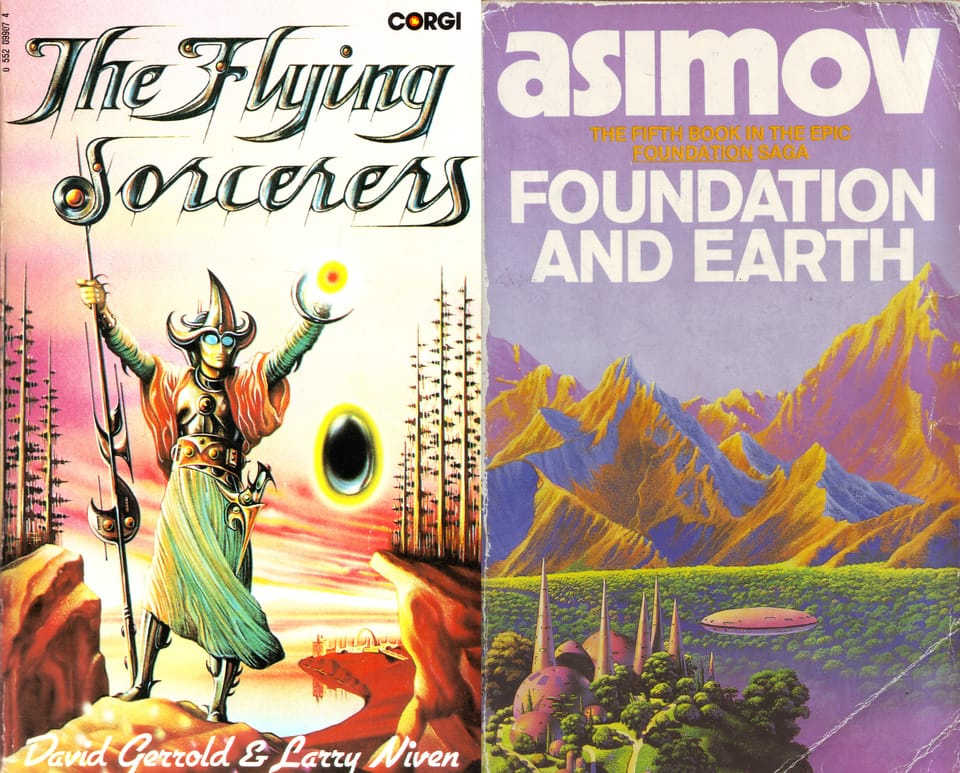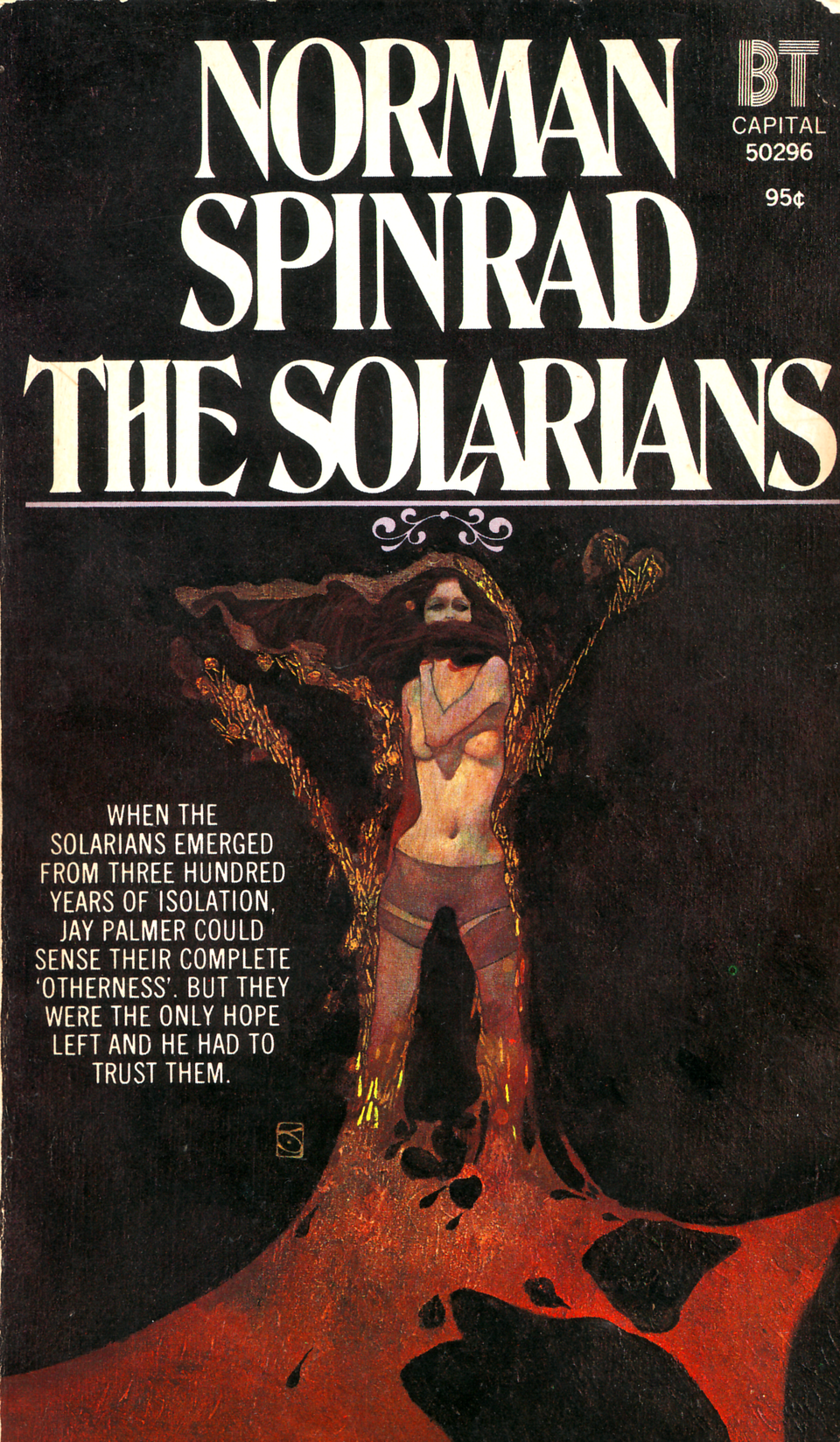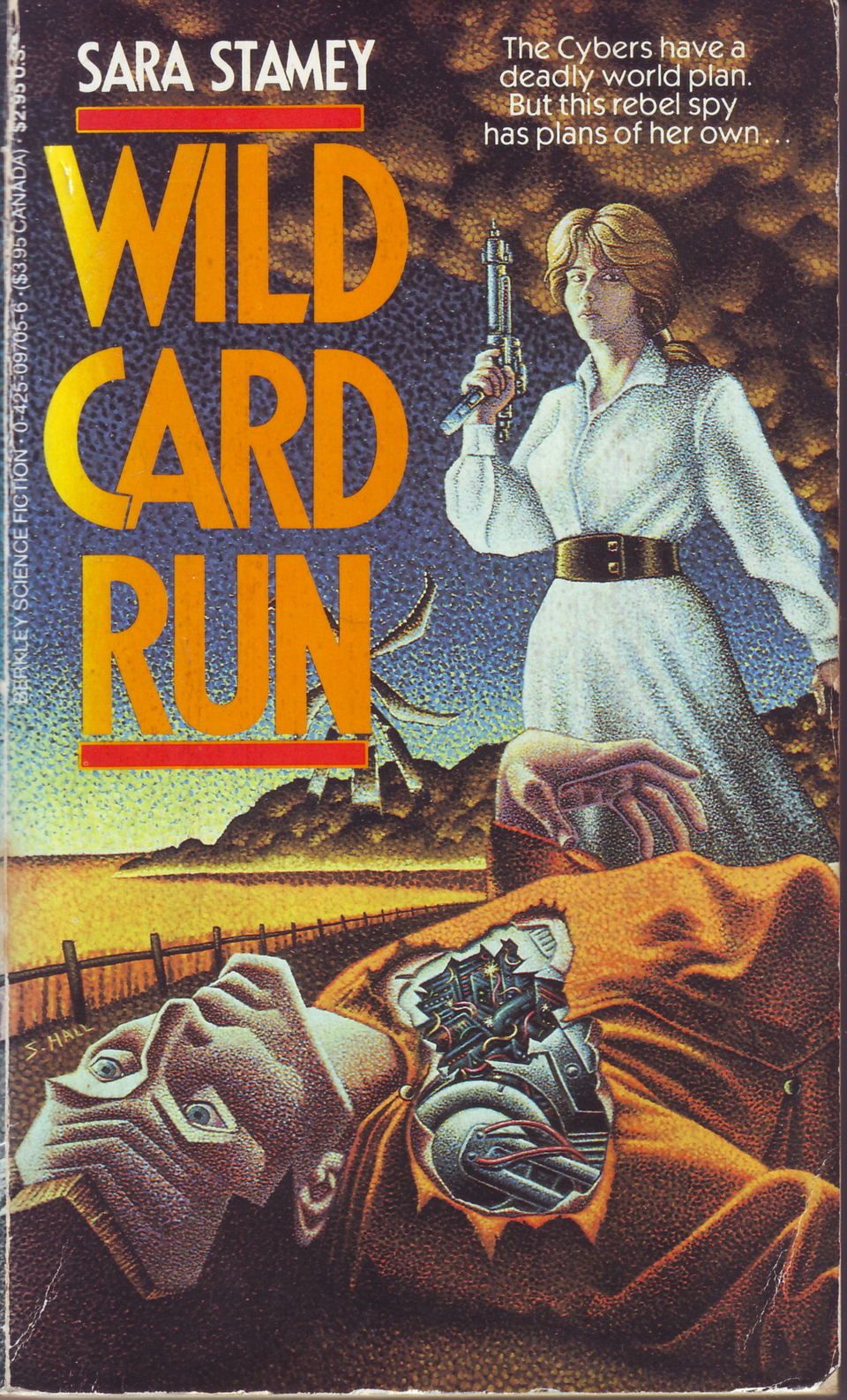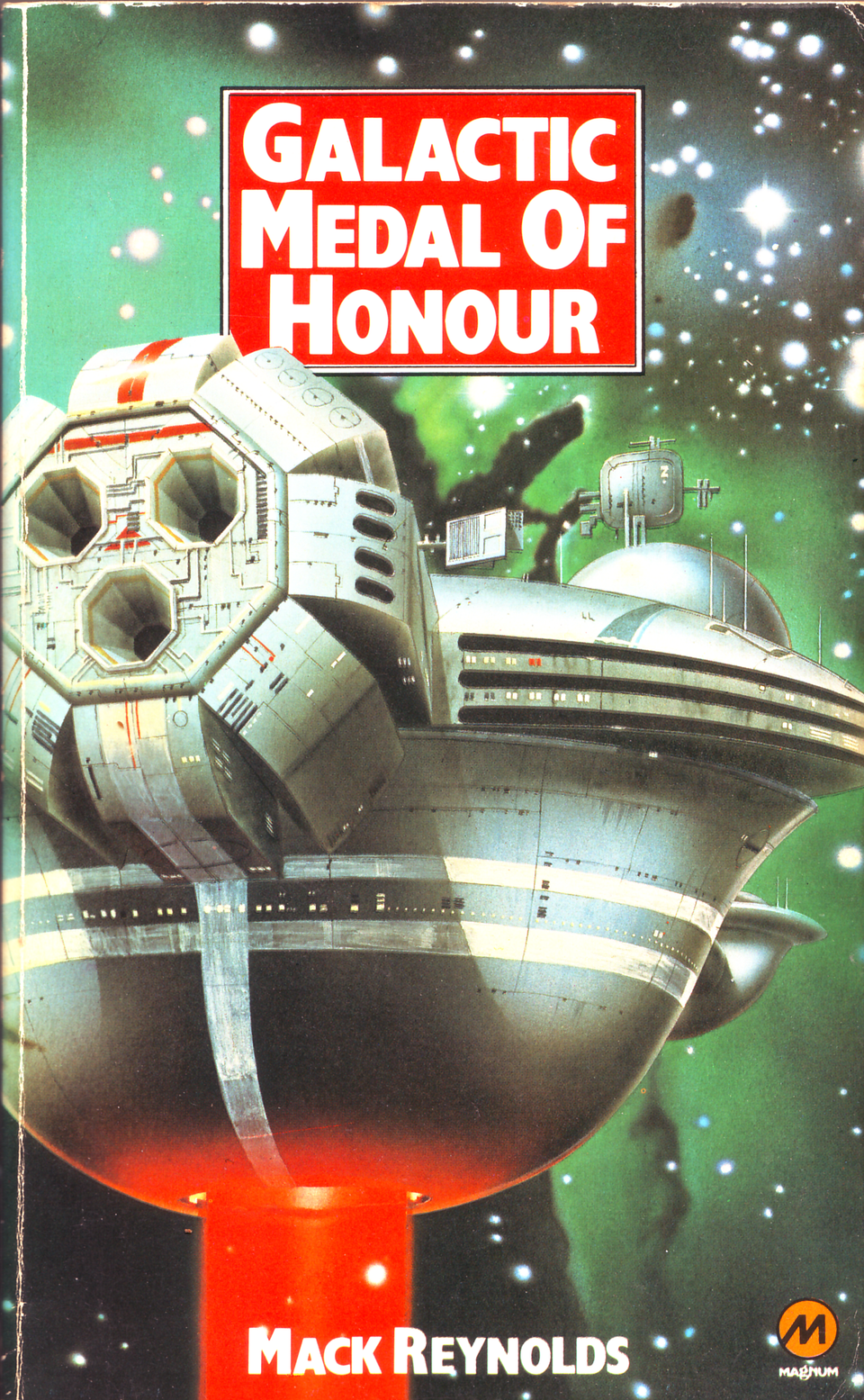Tangent Futures - SONGS FROM THE STARS (1980) Norman Spinrad
Some sirens are synthetic
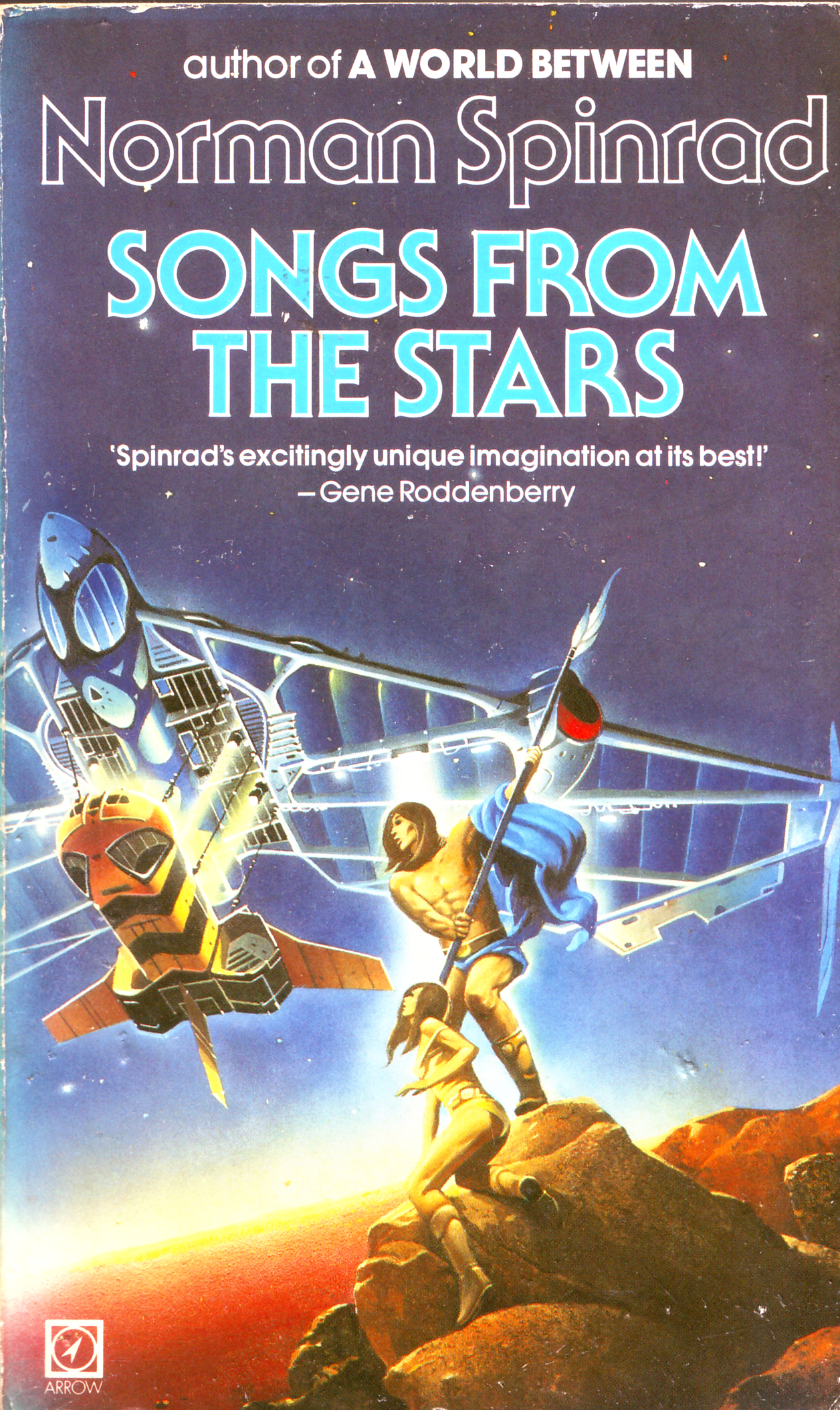
On the absolute surface, the plot roughly starts with the premise - what if hippies ran entire communities?
A better premise now, than in 1980, where the language, the ideas, the whole worldview is a lot less jaded, less tarnished by its own recent failure to upset the power structures of the time.
It gets more interesting though.
I've not read enough Spinrad to have a good handle on this, but he has the same quality so far as Philip K. Dick, in that his metaphysics are grounded by experience. A lot of fantasy books in particular have an issue where their metaphysics are third hand, bolted onto a secular world. In those, their capabilities and remit are grounded only in the material, magic fireballs or whatever. They don't live in any sense a metaphysical life. Magic is real in those books, but only like a tool, a type of action.
Philip K. Dick lives his metaphysics, and experience of them comes across in almost all of his later works. Spinrad, in this book at least, has the same quality. His ideas about karma, balance, good and evil, the destructive potential of the species, all have the tinge of the authentic. Of something perhaps considered at length.
The main protagonist, Lou, is invited to settle a dispute arising from the discovery of black science, in particular atomic energy, among radio parts being sold in La Mirage, the main settlement in the area. Lou is good protagonist material, thoughtful, observant, with a rich inner monologue.
He's a perfect master, a sort of karmic arbitrator, brought to a conflict to try and meter out actions to the benefit of everyone. Punishment and reward aren't explictly part of it, he says himself that his goal is to sweeten the vibe.
The world he lives in is a smallish area, suggested to be the west coast US, at a time far in the future where the entire concept of nations is rendered void by "the smash", a cataclysmic event whose origin is never expounded upon, but everyone knows was caused by black science. A sort of mythical event.
They live as close to a natural life as they can, and the karmic thinking is often around the dangers, the miasmic pestilence, of black science. They perceive it, understandably, as evil, as they believe that long ago atomic power, pollution, fossil fuels nearly destroyed the world. They judge it by its effects, the sickness it causes, the smog, the noise and disruption. They see that it draws people in and corrupts them.
The society itself is as you might imagine, a little superstitious, but never absurdly or baselessly. It's pretty horny as well, in the usual sci-fi tradition. The narrative is dense, rich, both descriptively and in the internal dialogue. You never feel lost in it.
Lou and one of the subjects of the investigation, Sunshine Sue, are soon caught up with black science. Spacers, the remnents of humanity that still cling to the idea of the pre crash way of being, have been manipulating Sue in order to bring them into a scheme of theirs to get back into space. They are both soon caught up in it. It's a difficult series of moral issues over technology, its ethics, whether ends justify the means and the very foundations of their worldview. Their karma hangs heavy, oppressively over them as they try to make the right decision.
It's a thoroughly good book.
The metaphysics of technology is a good subject for any book, especially science fiction, which tends towards the unreflective with it. Faced with a world where technology nearly destroyed it, and for the protagonists to end up engaging in that very destructive force, despite their unease, is an engaging scienario.
The back third of the book develops these themes further, and its not worth spoiling by recounting them. It doesn't limit itself to just technological questions, but other, deeper ones. There's events at the end which go into some deep cosmic territory, the ending is poignant and thoughtful.
Its good at giving a sense of the malaise of the technology itself, of its powers of seduction. The spacers live in relative, artificial comfort but are clearly unhappy and unwell. You get the sense the technology has lured them towards some unspoken destiny of travelling to the stars.
There is a price, of course, and this has been paid once already. Yet the spacers are lured again, thinking that this time, it might be different. They seem to be unaware of the tradeoff they're making. If there's a contrivance, it's that Lou in particular, despite his protestations, is a little too easily swayed. Yet, that could also be the lure of black science, and it's totally possible that this is an unspoken influence on both of them.
It poses important questions. Is there a metaphysics of technology, and where does the boundary between good and evil lie? Do we judge it by its stigmata, or by its potential? How much pollution and nature degradation is a price worth paying for advancement with technology?
Our societies are encouraged to think of technology as something that grows, as a natural advancement from one thing to another, as a plant might grow. It doesn't work like that. We're encouraged to think this to cover the more pressing question - what's the price we're paying, and is it worth it?
